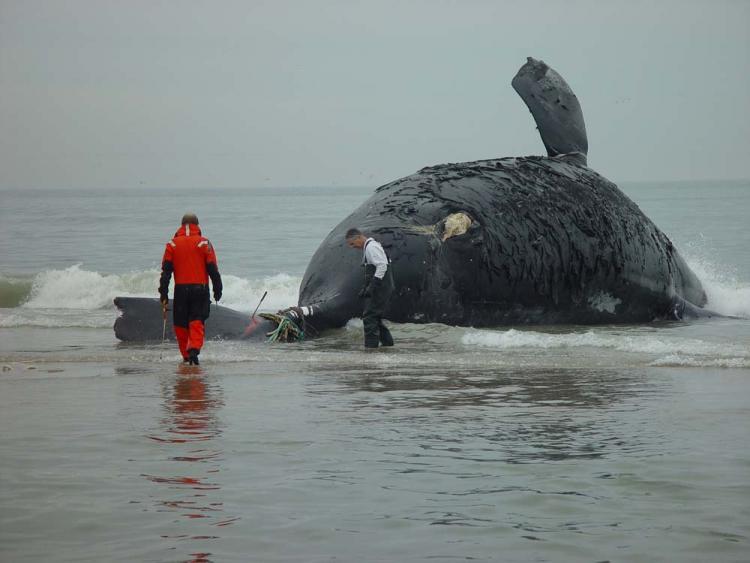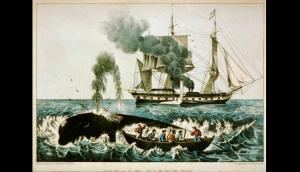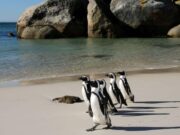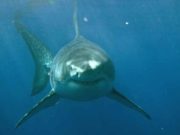 Decades of whaling and fishing for the largest species have altered the ability of oceans to store and sequester carbon.
Decades of whaling and fishing for the largest species have altered the ability of oceans to store and sequester carbon.
An individual whale contains a huge amount of carbon, an amount only exceeded by the largest trees, says Andrew Pershing, a research scientist at University of Maine. A century of whaling equates to burning more than 70 million acres of temperate forest or 28,000 SUVs driving for 100 years, he says.
We tend to think of carbon storage in peat bogs, trees and grasslands, not in animals but by removing whales, sharks and large fish, we’ve reduced the amount of carbon stored in these populations.
Conserving larger marine vertebrate species and the largest individuals in the species should be a top conservation priority.
“Carbon credits could provide additional incentive to rebuild fish and whale populations”, Pershing says.
Ocean iron fertilization is the most widely discussed idea for sequestering carbon in the ocean. Rebuilding whale and large fish populations would be even more efficient means of storing carbon.
“If we had all the whales we used to have, they would remove the same amount of carbon in a year as 200 of the most efficient iron fertilization events.”
A blue whale has a biomass of 90 tons, with 9 tons of carbon stored in its tissues. Only a large tree has more carbon. Because of their potential to store carbon for years, marine vertebrates such as whales are comparable to trees.
Because of their size and few predators, whales and other big marine vertebrates can efficiently export carbon from the surface waters to the deep sea. Those that die natural deaths transport their carbon to the ocean depths, away from the atmosphere.
 The researchers estimate that 100 years of whaling removed 23 million tons of carbon from marine ecosystems. Populations of large baleen whales now store only 15 percent of the carbon they had before whaling.
The researchers estimate that 100 years of whaling removed 23 million tons of carbon from marine ecosystems. Populations of large baleen whales now store only 15 percent of the carbon they had before whaling.
“Compared to smaller animals, bigger species require less food (carbon) per day to support each gram of tissue. The same amount of food can support a greater tonnage of whales than penguins.In many ways bigger is better,” Pershing says. “Larger organisms are more efficient, requiring less food per unit in their bodies.”
Bottom line: We can get significant carbon savings by conserving resources in the ocean, protecting whales, larger fish and sharks
Information Provided by The University of Maine











